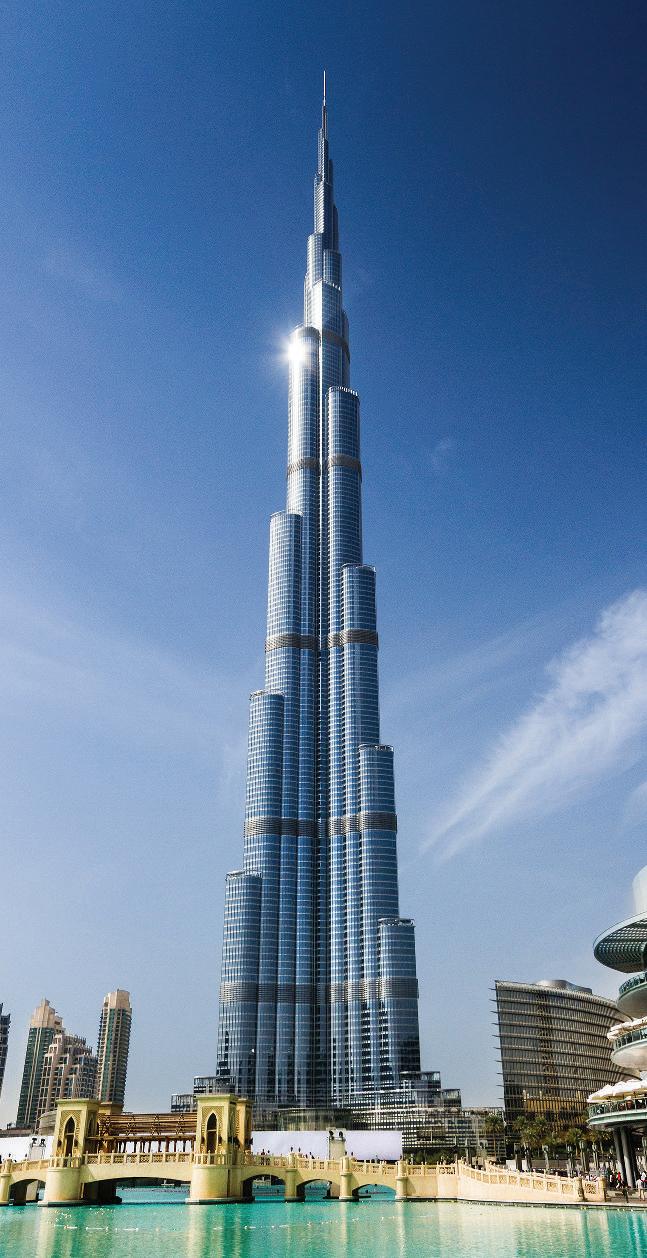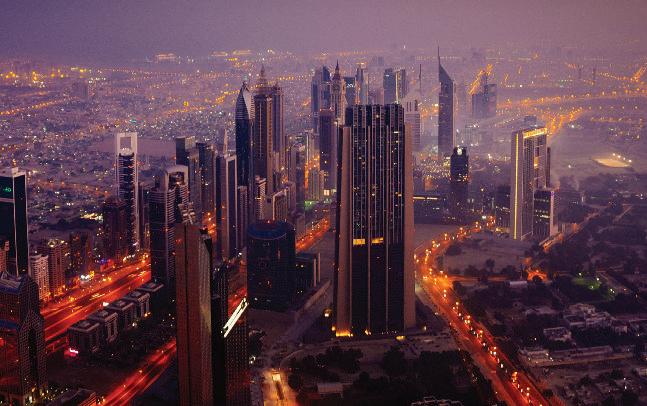
5 minute read
Davidson & Co Legal
DUBAI IS OPEN FOR BUSINESS
A GUIDE TO CORPORATE STRUCTURES IN DUBAI
Advertisement
Davidson & Co’s Founding Partner, Jonathon Davidson, has been practising in Dubai and the wider Middle East for 20 years and acts for a wide mix of clients including high-net-worth individuals and other clients, private banks and Multi Family Offices. Jonathon is well known in the offshore community and is considered as the ‘go-to’ advisor in the GCC’s private client community.
Setting up in Dubai
Over the last 30 years, Dubai has transformed itself from a local trading community into one of the most popular and successful destinations for corporate and commercial set ups. With its growing multi-jurisdictional nature, and in the absence of income tax for both mainland registered companies and those registered in the free zones, Dubai has become a major trading hub in the region for both High-net-worth individuals and local and foreign companies wishing to establish a business presence in the region.
Dubai offers a range of diverse company structures, both onshore, “offshore” and within the designated Free Zones, making it one of the most versatile markets for set ups and investments in the world. Below is a brief guide as to the most common corporate structures available in Dubai.
© All images Courtsey of Davidson & Co

1. Mainland Dubai Dubai’s Department of Economic Development (DED) is the department for licensing and registration of corporate entities in mainland Dubai, and the Commercial Companies Law (CCL), as amended, is the federal law that regulates all corporate entities set up in the UAE mainland.
Limited Liability Company A Limited Liability Company (LLC) is the most common form of business set up in Dubai. When forming a LLC, the CCL prescribes that at least 51% of the shares must be registered with a UAE national (natural or legal person).
Commonly, where a UAE national (otherwise known as a Local Partner) is used and the foreign investor owns 100% of the beneficial interest in the LLC, the LLC’s memorandum of association can be structured in such a way so as to transfer all authorities, rights and powers to operate and manage the LLC to the foreign investor, including for example the ability to appoint the general manager and the company board of directors.
Another safeguard to protect the foreign investors interests in the LLC can be provided in the form of a unique set of contractual arrangements commonly known as side agreements. This comprises a set of agreements entered into between the foreign investor and Local Partner with the aim of vesting all managerial control, voting and dividend rights in the LLC to the foreign investor. As such, the Dubai LLC formation allows companies to establish flexible, differential profit sharing arrangements with a UAE Local Partner. The Local Partner can be paid a fixed annual fee, a percentage of sales or a percentage of profits.
2. The Free Zones Dubai is home to over 30 Free Zone jurisdictions that cater to various industrial and business categories. These designated territorial areas are considered separate legal jurisdictions from the UAE government, which therefore allows the Free Zone jurisdictions to govern, license and register corporate entities independently.
These designated Free Zones are intended to encourage foreign investment by offering foreign investors 100% ownership of their companies. Another major advantage to foreign investors is that Free Zone laws generally prescribe a guaranteed tax-free period of 50 years and there are no restrictions on the repatriation of capital or profits. Other benefits include free transfer of funds, documentation required for set up less onerous, simplified and less expensive recruitment processes for staff, 100% free transfer of funds and desirable long term leading opportunities.
The main restriction however for a Free Zone corporate entity is that it cannot actively trade outside of the territorial parameters of the free zone unless it appoints a Dubai mainland based commercial agent or incorporates a branch office on Dubai Mainland.
Popular Free Zones include: • Jebel Ali Free Zone - established in 1985 and the largest and oldest of the Free Zones. Not only does Jebel Ali Free Zone facilitate trade in the UAE, it is a popular trading centre across the Middle East and North Africa. • Dubai Multi Commodities Centre (DMCC) – more than 14,100 registered businesses representing 170 different countries, catering for commodity trading in gold, silver, diamonds and much more. DMCC is con-veniently located close to both Dubai and Abu Dhabi. • Dubai International Financial Centre (DIFC) - an internationally recognised financial hub connecting the Middle East, Africa and South Asia with the rest of the world. DIFC is the largest financial centre in the region, with 1,750 registered businessesand more than 21,000 experienced professionals.

Davidson & Co is a Dubai-headquartered law firm providing a full range of legal services to High-net-worth individuals and other private clients throughout the UAE, the Middle East, North Africa and Geneva whilst at the same time offering a high quality, cost effective alternative for major corporates, financial institutions and multi-nationals. The team, including lawyers from England, Scotland, Russia and the GCC has collectively over 50 years’ experience in the UAE, both in private practice with respected local and international law firms, and in industry. Davidson & Co is dedicated to developing long-term relationships with its clients with the aim of offering a strategic plan for long-term business success and sustainability.

3. Offshore Companies Certain free zones, for example the Jebel Ali Free Zone in Dubai offer the concept of an offshore company in the UAE. Offshore companies are flexible corporate entities which are generally used as holding companies in the UAE.
Offshore companies are very quick to set up, there are no limitations on foreign ownership and there is no minimum share capital requirement. A minimum of 2 directors (maximum of 5) are required, all of whom must be natural persons (no corporate directors). Shareholder(s) may be either natural persons or corporate entities, any of which may also be nonresidents (expatriates).
Furthermore, offshore companies can open and operate bank accounts as well as own investments inside and outside of the UAE. The other major advantage lies in Dubai property ownership. Select offshore companies such as those incorporated in the Jebel Ali Free Zone can own real estate in Dubai in certain designated areas. Therefore, any income generated from the company’s investments (such as real estate) can be held in the company bank account and repatriated thereafter.
Forms of business licenses in Dubai All forms of company, whether mainland or Free Zone, must apply for at least one type of business license. The three main types of business license are as listed below:
1. Commercial License (e.g. trading activities) 2. Industrial License (e.g. manufacturing or industrial) 3. Professional License (e.g. personal services such as consultancy)










